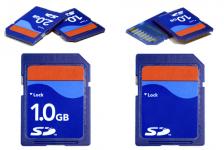Top 5 Reasons to Choose Android Over iPhone
Tech Talker plays devil’s advocate and outlines the top 5 reasons to buy an Android device over an iPhone. Check out the previous episode (#124) for 5 reasons to choose an iPhone over an Android.

In case you missed last week’s episode, be sure to check out why for someone people, the iPhone is the better choice.
Sponsor: This episode of Tech Talker is brought to you by the audiobook edition of Rogue Code by Mark Russinovich. In this intense thriller, cyber security expert Jeff Aiken discovers that the New York Stock Exchange has been hacked… and someone on the inside knows. Listen to an excerpt at www.macmillanaudio.com/RogueCodeAudio.
Before I start, I want to throw out my disclaimer one more time: I’m not partial to any one operating system or phone. I think each one has its pros and cons and some features are better for some people than others. Basically I’m trying to avoid hate mail.
But just to play devil’s advocate, in this episode I’ll discuss the ways in which an Android device is better than an iPhone. Keep in mind that there are quite a few Android devices on the market (and only one iPhone), so it’s not always fair to make a 1 to 1 comparison.
Reason #1: Price

Under most circumstances, you’ll always be able to find cheaper Android phones than you will iPhones. This includes buying used phones, or buying phones on contract.
Reason #2: Removable Parts
My next favorite feature about Android devices is all of the awesome removable parts that they have. For example, it’s super easy to swap out batteries. This means you can buy multiple Android batteries and swap them in and out with no problem.

The same goes for memory cards. You can insert a typical micro SD card into your device and expand its digital capacity immensely. Or say you’re running out of space on your SD card, well you can easily swap out another one on the go with no problems. This isn’t possible on an iPhone.
There’s also a pretty nifty functionality that allows Android devices to mount USB flash drives onto the device. This requires a special cable, but it’s really affordable and allows you to send and share information on the go if need be.
Reason #3: Features

This seems like a no brainer when it comes to phones. After all, how many of us have experienced the disappointment of watching our expensive smartphones take a dip in some unforeseen body of water? I’ve even done an episode on How to Save Your Wet Electronics with tips on rescuing soggy devices. So having a phone that can withstand some moisture is a lifesaver.
Also, most Android devices have NFC (Near Field Communication), which allows Android devices to send and share information if they are close to one another. This was built into many devices hoping to take advantage of Google Wallet.
What I love about NFC is that you can program your phone to perform actions when it comes into contact with another NFC chip. For example, a cheap $1 NFC tag you can buy online can be used to make your phone send a text message or start a timer automatically.
Reason #4: Standard USB Charging

Another great feature of the USB charging capability is that if you plug your phone into your computer via USB, you can mount the file system of your device and use you phone as a large thumb drive.
Reason #5: It’s Linux and It’s Unlockable
By far my favorite feature about the Android platform is that it uses a Linux operating system and you can browse and edit the entire file system. If you’re a geek like me, this is fantastic because it means there’s next to nothing you can’t make your phone do. It’s basically a tiny computer you can program to do whatever you want and look however you want it to look.
See also: The Benefits of Jailbreaking
This means that app developers and customizers have free reign to make customizations to the operating system!
The bottom line is that an Android user is someone who likes to tinker with technology and really customize their user experience. It’s also someone who wants a more open platform system that’s compatible with more devices. Android phones offer multiple form factors with different features, so if you want a waterproof phone, go with the Galaxy S5, and if you want a giant screen, there’s the Galaxy Note. generally, Android devices are cheaper and compatible with more devices than iPhones.
So let’s sum up the 5 reasons to choose an Android over an iPhone:
-
Android devices are generally cheaper than iPhones.
-
Android phones have removable parts like batteries and memory cards that make it easy to add capacity.
-
Most Android phones have NFC and some are even waterproof.
-
Android phones use standard USB micro chords for power and connectivity.
-
The operating system is Linux-based, which means any user can unlock and modify it to their heart’s content.
Well, that’s it for today! Be sure to check out all my earlier episodes at quickanddirtytips.com/tech-talker. And if you have further questions about this podcast or want to make a suggestion for a future episode, post them on Facebook QDTtechtalker.
Until next time, I’m the Tech Talker, keeping technology simple.
Android phone image courtesy of Shutterstock.







